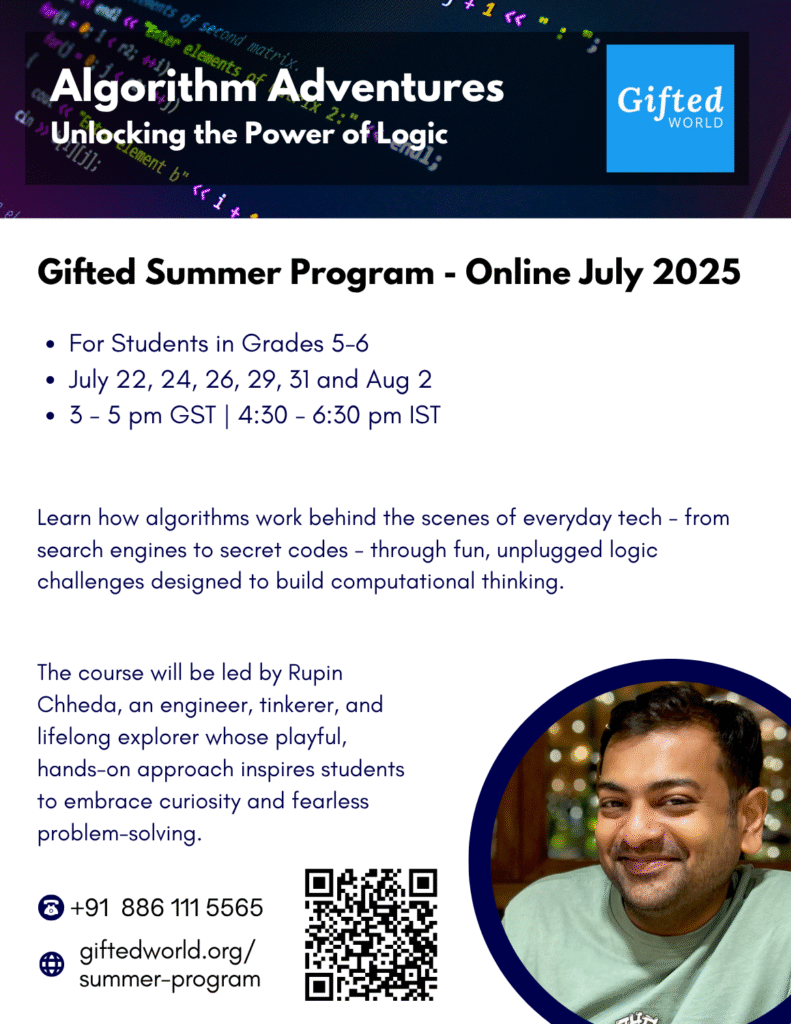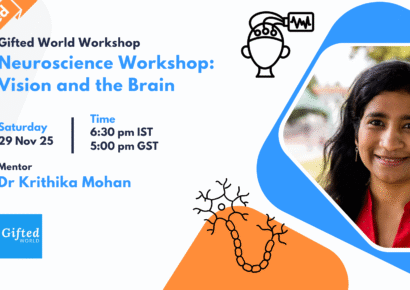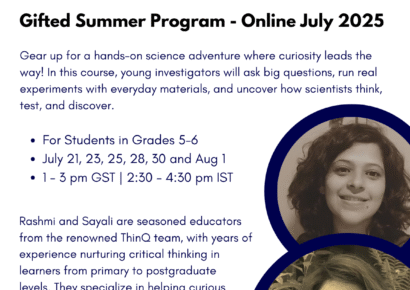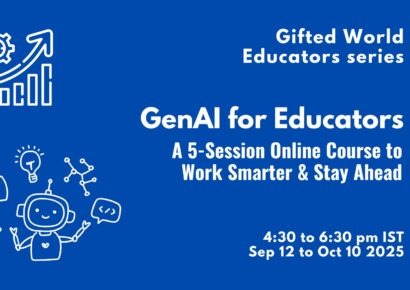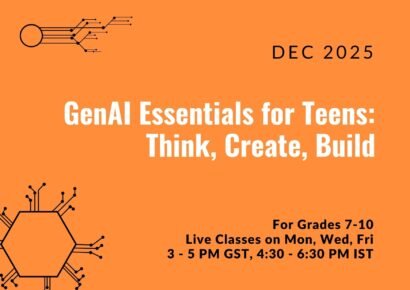Currently Empty: $0.00
Algorithm Adventures: Unlocking the Power of Logic – Gifted Summer Program, July 2025
About Course
Ever wondered how your favorite games, websites, or even robots are able to do complex things without having a brain? They use special recipes called algorithms – super-smart, step-by-step instructions that computers (and people!) follow to solve puzzles and problems.
In this course, you’re going on a thrilling journey to explore the magic of algorithms – without touching a computer! Using pencil, paper, and your imagination, you’ll solve cool challenges, crack secret codes, and become a logic wizard. You’ll learn how to make flowcharts (like treasure maps!) to guide your thinking. Are you ready to unlock your inner problem-solving hero?
This course is about computational thinking – the ability to break down big, tricky problems into smaller, easier steps. This kind of thinking helps you come up with smart solutions, whether you’re coding a game, solving a math puzzle, or doing a science experiment. Learning computational thinking now builds a strong foundation that will make future coding, math, and science projects much easier-and much more fun!
If you’re in Grades 4-6, this is the perfect time to build these skills. Whether you’ve already started learning coding or are just getting curious, understanding algorithms and computational thinking will give you the tools you need to go even further. It’s like learning how to make many kinds of blueprints first, before you jump into constructing skyscrapers!
You’ll be solving problems like:
- Finding your friend’s name quickly in a long list (Linear Search)
- Figuring out the best way to sort a messy stack of books by size (Bubble Sort)
- Strategizing how to climb a staircase step-by-step (Recursion)
- Exploring different ways to visit all your friends’ houses using a map (Graph Traversal)
For Parents
Algorithm Adventures introduces students to computational thinking, a critical skill that’s about more than just coding. Computational thinking helps children break complex problems into simple, manageable steps-building their logical reasoning and problem-solving abilities.
Understanding algorithms goes beyond learning any one programming language. Algorithms run our world-from search engines and GPS maps to recommendation systems like Netflix or YouTube. Developing a strong foundation in computational thinking ensures children are equipped to understand, innovate, and meaningfully apply technology in any field they choose.
Unlike typical coding courses, this class emphasizes conceptual understanding and structured thinking processes. Through engaging pen-and-paper activities, students enhance their mathematical reasoning, scientific inquiry skills, and critical thinking.
In today’s rapidly changing world, computational thinking is essential. This course ensures that whether your child chooses a career in technology, science, business, or the arts, they will have the problem-solving mindset needed to thrive.
Timings:
- 22 July, Tuesday: 3 – 5 PM GST, 4:30 – 6:30 PM IST
- 24 July, Thursday: 3 – 5 PM GST, 4:30 – 6:30 PM IST
- 26 July, Saturday: 3 – 5 PM GST, 4:30 – 6:30 PM IST
- 29 July, Tuesday: 3 – 5 PM GST, 4:30 – 6:30 PM IST
- 31 July, Thursday: 3 – 5 PM GST, 4:30 – 6:30 PM IST
- 2 August, Saturday: 3 – 5 PM GST, 4:30 – 6:30 PM IST
Frequently Asked Questions (FAQ)
Q1. What exactly is computational thinking?
Computational thinking is a way of solving problems by breaking them down into smaller, logical steps. It helps children think clearly and organize solutions efficiently, much like how algorithms guide computers. It’s a key skill behind coding, but it’s useful far beyond the screen!
Q2. Does my child need prior coding experience?
No! This course is designed for beginners and those who have already explored some coding. Since we focus on the thinking behind programming, students of all experience levels will find it valuable.
Q3. My child already knows Python. How will this course benefit them?
Even if your child knows how to code in a language like Python, they may not have mastered the logical problem-solving skills that make code powerful. This course builds the foundation for creating meaningful, efficient solutions – skills that are crucial for writing better programs later.
Q4. Will students learn any actual programming?
Students won’t be learning a programming language. Instead, they’ll practice using flowcharts and logic puzzles to sharpen the thinking that programming requires. These are the building blocks that make learning any programming language much easier and more meaningful later.
Q5. How is computational thinking useful beyond programming?
Computational thinking helps in mathematics (like solving proofs and puzzles), science (experimenting methodically), and even real life (planning events, spotting fake news, and solving everyday problems). It’s a life skill that fosters structured and creative thinking across subjects.
Course Content
Session 1
Zoom Session 1: 22 July, Tuesday: 3 – 5 PM GST, 4:30 – 6:30 PM IST
Session 1: Homework
Session 1: Recording
Session 1: Answer for Homework 1

